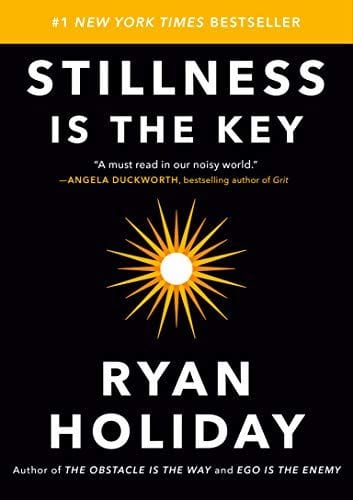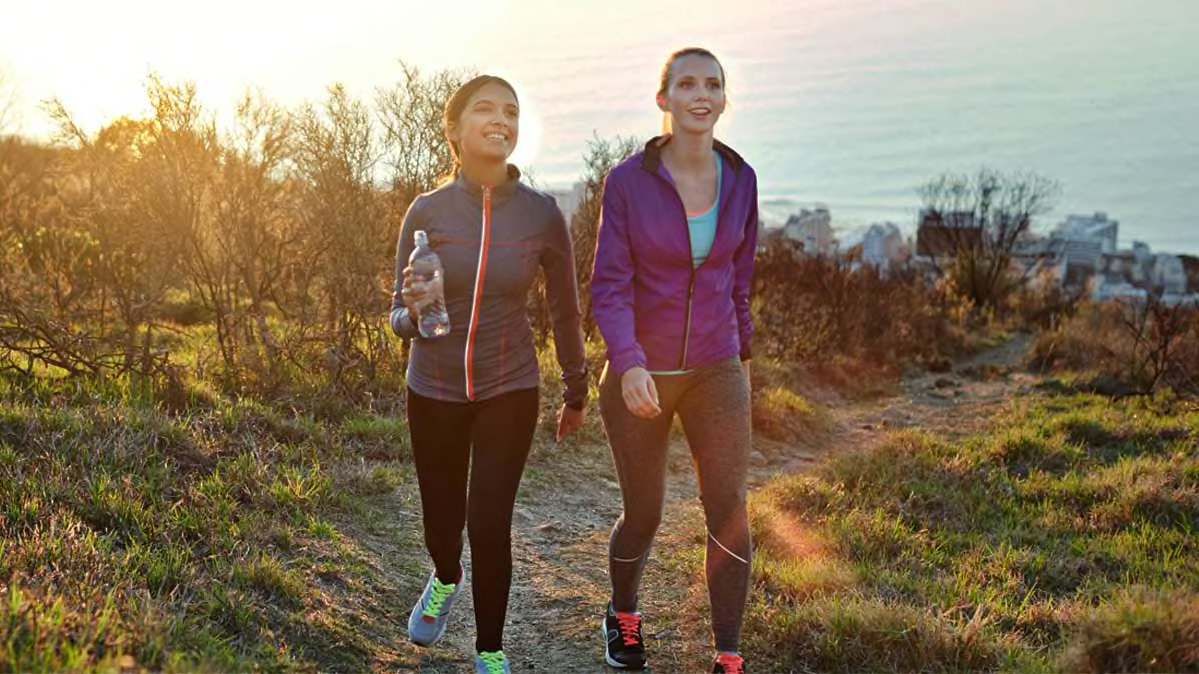Why Walk? Finding Stillness through Mindful Movement
In one of my first videos on getting started with sustainable healthy lifestyle change, I encouraged you to start walking more as a simple way to increase your "NEAT" - non exercise activity thermogenesis (calorie burn from unstructured exercise).
Note: If you prefer to watch a video of this information to reading a blog post, you can do so here:
Finding Stillness through Mindful Walking
While a little bonus calorie burn to up your NEAT is a great reason to walk more, there are also many psychological benefits associated with walking! Perhaps somewhat counterintuitively, walking can actually be a wonderful way to tap into more stillness and mindfulness.
During my morning reading, I've recently been enjoying the book Stillness is the Key by Ryan Holiday. The chapter "Take a Walk" spoke to the mental side of walking.

Wait a second..."How does walking get us closer to stillness?" you may be wondering. Fair question, given that the whole point of stillness is presumably to reduce activity. But, hear me out! Although we are in motion when we walk, it is not frenzied motion, and often it's not even conscious. It's repetitive, and in the best cases, ritualized. It's deliberate, and it can bring peace.
Famous Walkers throughout History
Like to walk? You're not alone. Take a look at all of these famous individuals throughout history who made walking a part of their routine. Often, it was through their walking they were able to clarify their thinking and come to some of their biggest breakthroughs, many of which changed the course of history by leading to the creation of art or scientific discoveries that continue to impact our daily lives!
Soren Kierkegaard - this Danish philosopher walked around Copenhagen, Denmark. Wrote to his sister in law, who was often bedridden and depressed as a result, "Above all, do not lose your desire to walk: Every day I walk myself into a state of well-being and walk away from every illness; I have walked myself into my best thoughts, and I know of no thought so burdensome that one cannot walk away from it"
Friedrich Nietszche - This German philosopher and cultural critic stated "It is only ideas gained from walking that have any worth"
Nikola Tesla, a Serbian-American inventor, engineer, and futurist, who discovered the rotating magnetic field, one of the most important scientific discoveries of all tiome, on a walk through a city park in Budapest in 1882.
Ernest Hemingway - American writer who took long walks along the quais in Paris whenever he was stuck and needed to clarify his thinking
Charles Darwin - English scientist whose daily schedule included several walks
Steve Jobs Entrepreneur and founder/former CEO of Apple-was known for his walking meetings (it's often easier to have hard conversations in motion, without having to face a person and make eye contact)
Amos Tversky, cognitive and mathematical psychologist and Daniel Kahneman, Israeli-American psychologist and economist, author of incredible book Thinking, Fast and Slow) - did the best thinking and experimental design of their lives on leisurely walks with each other.
Martin Luther King, Jr., - American minister and civil rights activist who, as a seminary student, took an hour walk each day through the campus woods to "commune with nature"
Walt Whitman, American poet and essayist, and Ulysses S. Grant, former President of the United States- often bumped into each other on their walks around D.C.
William Wordsworth- English romantic poet, walked as many as 180,000 miles in his lifetime (an average of 6.5 miles/day since he was 5 years old) - did much of his writing while walking.
Sigmund Freud - Austrian psychologist and neurologist, known for his speedy evening walks around Vienna after dinner.
Ludvig van Beethoven - German composer and pianist - carried sheet music and a writing utensil on his many walks and used his time to jot down ideas as they came.
Keys to Mindful Walking
Of course you can walk for exercise. And of course you can pair a walk with a great podcast or calming music for some level of distraction or entertainment. However, I challenge you to take a walk now and then without your devices to enjoy the full psychological benefits Holiday writes about and that many of the famous actors of history above enjoyed:
- Put away your phone and headphones
- Be present and open to the experience
- Observe your surroundings using the senses: what can you see? what beauty can you find around you? What do you smell? Notice the feel of the ground pressing back against your feet. Listen for the sound of the wind in the leaves, or the cars passing, etc. Make eye contact with and greet those with whom you come into contact
- Notice and bring awareness and presence to experiencing the repetitive, ritualized motion of your footsteps. Tune into your breath. Potentially repeat a positive affirmation or mantra to yourself.
- Get lost. Be unreachable. Go slowly.
- When you feel the tug of your responsibilities or the desire to check in with the outside world, push yourself a bit further.
Walking is an affordable luxury available to us all. It's not about burning calories or getting the heart rate up. It's just an embodiment of the concepts of presence, of detachment, of emptying the mind, of slowing down, noticing, and appreciating the beauty of the world around you.
Research on benefits of walking
Walking doesn't just feel good. It is really good for us! Check out just a few research-based benefits of walking below!
- New Mexico Highlands University - study found that the force from our footsteps can increase the supply of blood to the brain
- Stanford Researchers - found walkers perform better on tests that measure "creative divergent thinking" during and after their walks.
- Duke University Study found that walking could be as effective a treatment for major depression in some patients as medication
Image credit: https://www.consumerreports.org/exercise-fitness/benefits-of-walking/
So, walking feels good, is established in the research as providing physical and psychological benefits, and was practiced by great and influential thinkers throughout history! What are you waiting for? Give it a try - take an unplugged walk this week - no device, no headphones. Tune in to your surroundings, and see if you can't find a little stillness through mindful movement today!
